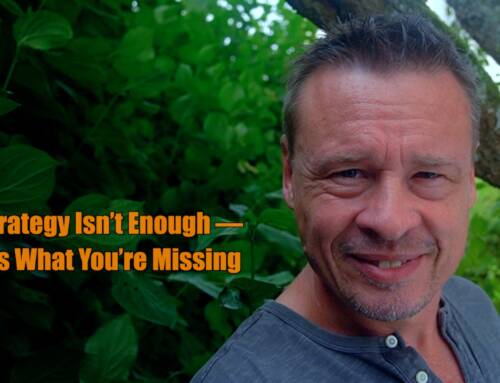“Your content doesn’t have to be perfect!” — is just one of them!
Compiling content for your project is not easy.
Yes, but part of what makes this difficult is completely unnecessary. It’s a result of some very common and persistent misconceptions.
For one, when your project starts its content creation process, there’s always this fear of being incorrect on the facts or having shallow information with incomplete details. While you should obviously not publish false facts, being obsessed with them can hold you back.
The truth is, the best way to become better at creating your project’s content is by doing it. Getting it out there. Press the darn button. This is the message you can hear everywhere on social media from established creators. There’s no indication anywhere that it wouldn’t be true for your project’s content creation process.
Think about this for a bit. I know your supervisor is probably wanting the best content you can come up with. So you need to convince him or her that going through extensive correction loops and involving professional copywriters or subject matter consultants is limiting your growth trajectory.
Another argument is that you can always correct most content and facts if they actually turned out to be wrong. Most of us don’t produce content that gets millions of hits in an instance and is groundbreakingly important so that it cannot be changed.
You might have to make sure though these quick adjustments are not difficult to be made due to a long rigmarole of a sign-off procedure or the use of ancient tools like PDF that take forever to be opened, changed and re-uploaded. If that’s the case, you’ll probably have to work on your supervisors to change these practices first, unfortunately.
The basic argument is that we’re living in a fast-paced information environment. So having a turnaround and constant output is important. The trick is to not make this look like a trade-off between correct facts and being fast, or best quality vs. being visually more present.
Below you find some of the tips you might want to look into before spending endless time.
1. Focus more on context than on content
Context is what you write about while content is what you produce.
Context and the gist are actually far more important than your content as such. I know this is a tough pill to swallow. But have a look at content, for example on Medium, and you’ll find that many of the most productive and well-read writers don’t actually have super well-written or well-presented pieces.
They break many of the common rules of good writing and it doesn’t seem to affect the attractiveness of their stories.
What drives the interest of readers to them is what they are talking about. If they focused on creating content they sounded like everyone else.
Another advantage of focusing on context is that it will allow you to develop content much quicker. You’ll get many more articles or videos out. Continuity and cadence are very important factors of content production nowadays.
2. Never underestimate the negative impact of content pending in your outbox
You might spend months creating the perfect fact collection. Every supervisor along the chain of hierarchical organizations wants to have a say on the draft. Some even demand to see nothing but finalized drafts. Only to then come up with: “Can we not do this completely different?”
In other words, often the response is very delayed, resulting in a whole portfolio of unpublished materials. Picking up the copy after weeks, again and again, is tiring for you as the communications officer because your mind has moved on. It’s demoralizing for the creative side of your mind.
Eventually, you end up with so many unpublished articles or videos or whatever content that you’ll have to give up on many of them. It’s just slowing you down too much, and it’s starting to have a serious impact on your motivation. Good content creators know that keeping one’s motivation up is absolutely key.
So, see that you get the story out. And if you’re a supervisor of a content creator, please remember that leaders are responsible for motivation in the team and let five be even more often.
3. Focusing too much on improving your content quality wastes a lot of time
Quality improves over time. Just doing it over and over. This focus on quality that we hear of all the time in Youtube tutorials is not entirely wrong. The trouble with it is more that it is blocking our productivity.
Have a look at some promising online content creators who gave up or slowed down. Their very initial content was often done perfectly. Whereas the great content creators started out with publishing a lot of not-so-perfect content.
Remember, perfectionism is not positive. In psychology, it is a “broad personality style characterized by a person’s concern with striving for flawlessness and perfection and is accompanied by critical self-evaluations and concerns regarding others’ evaluations.” (Wikipedia)
Sure, you should strive to improve on quality. Also you shouldn’t stop worrying about quality. This is the engine behind your improvement. But tomorrow is another day and today you better get this article out, this video exported.
The more you produce, the better your articles get. You’ll gain invaluable experience on how you can make your next video better.
4. There is a place for long-form content and a place for short-form content
Many people believe that everything has to be short and snappy on the internet. Others think that their content has to have some depth and therefore more length to convey their complex topics.
Both are right. The truth is, it depends. It depends on the platforms where you place your materials and it depends on the typical ways your material is accessed.
Another possible source of massive demotivation. Publishing long articles that take forever to create and then seeing them getting no traction whatsoever can leave any content creator demoralized.
Here is a rule of thumb. Social media platform audiences tend to prefer short articles and brief videos. If your article is on your website and it is found via Google then longer is better. Because on Google, there is search intent. But on a social platform, there is no search intent. It’s all about interest. And this interest fades when the article is long. From then on everything depends on whether the long-form article delivers on its promised value.
5. Put in the hard work and seek expert advice
You have to put in the work and you have to have good materials, publishing as much as you can.
Not just in content creation. Exceptional political leaders or sports icons, when asked what their recommendation to youngsters is, they usually say something like “put in the work”, “show up”, “don’t give up”, “you always lose more than you win.”
Definitely, there are things you can do wrong like focusing on the wrong issues. But still, putting in the hours is mostly the best way to succeed.
You’ve probably heard of the 10,000-hour rule, which was popularized by Malcolm Gladwell’s blockbuster book “Outliers.” As Gladwell tells it, the rule goes like this: it takes 10,000 hours of intensive practice to achieve mastery of complex skills and materials, like playing the violin or getting as good as Bill Gates or The Beatles.
However, there’s more to the study Gladwell was referring to. For Anders Ericsson, a professor of psychology at Florida State University, the 10,000-hour rule is only the beginning of the story. In “Peak, Secrets from the New Science of Expertise” he describes his findings that it’s not just the hours that are important, it’s how you use them.
One important factor to become excellent at what you’re doing is how good your teachers are. Practice is important but you can practice for thousands of hours and still not be a master performer. Others with less practice could be better than you. They might’ve had a teacher who showed them just what to focus on at a key moment in their practice regimen.
If you’re a creating communications officer in development cooperation, you’re likely not to have a supervisor who has a communications background and therefore could teach you. That is an unfortunate reality in most development projects. Make sure that you get as much professional training from outside as possible. If need be spent time online to find tutorials and advice on your own.
If you are a supervisor of a communications officer, make sure that you provide this training when you don’t have the expertise in-house. Also, hire only people with a communications background on the job. That way you have a better chance that the incumbents are really willing to become great communicators and did not just use the position to get into your organization.
If you don’t believe that it’s important to hire communicators for the communications positions of your project, well then don’t expect impact from your outreach and a growth trajectory in this area.
6. Don’t expect too much from what you publish
It’s really difficult to crank up your output when you care intensively about it.
Don’t be too sensitive about your content. Especially if English is not your first language like in my own case, the choice of words and idioms can become a constant worry. Same for political correctness in development cooperation.
It all means pressure, resulting in taking much more time to finish. Creating with ease is a key to create more. As a supervisor, you can do a lot to help achieve this.
In The Real Enemy Is Yourself. Here’s How to Win the War Against Your Three Biggest Enemies Tim Denning writes “when we learn how to tackle all three, optimal productivity can be reached.” For him three enemies are multi-tasking (just like Confucius did), overthinking and procrastination.





Leave A Comment